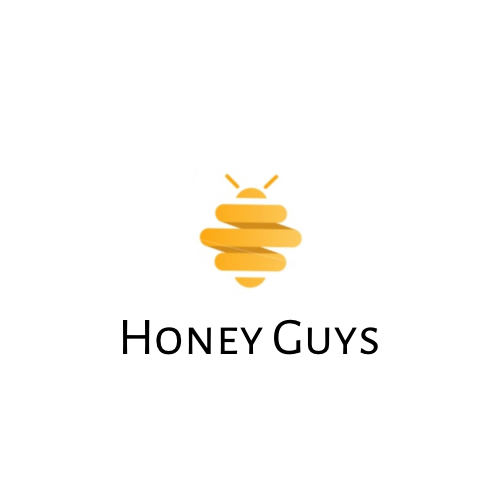Discover More About Honey
What Makes It Pure, Powerful, and Packed with Benefits
At Honey Guys, we believe in sharing not just honey — but knowledge. Below are some helpful, bite-sized insights about honey that can benefit you. While this isn't the entire story (honey is an endlessly fascinating subject!), it covers core info worth knowing — with trusted links if you’d like to read further.
🍯 What Makes Honey Pure?
Pure honey is honey in its most natural form. That means:
- No heating or pasteurisation
- No hidden additives or processing
- Retains natural pollen, enzymes, and flavour
It’s raw, real, and just as the bees made it.
Learn more about raw honey from the British Beekeepers Association →
🌱 Why Is Pure Honey Good for You?
Because it’s minimally processed, pure honey offers:
- Natural antioxidants
- Digestive enzymes
- Antibacterial and antiviral compounds
- Trace vitamins and minerals
It supports health in ways processed honey doesn’t.
Explore the health benefits via Healthline →
🌸 Can Honey Help with Hay Fever?
Many find real, local honey eases hay fever. It contains natural pollen — which may help build tolerance over time. It’s not a cure, but it’s a gentle, tasty way to support seasonal wellness.
NHS – Hay fever symptoms & treatment →
❄️ Why Does Honey Crystallise?
Crystallisation is natural and normal. It happens when glucose separates from water. It’s harmless and even a sign of pure, unheated honey. Gently warm the jar if you prefer it runny again.
Find out more on crystallisation →
🚼 Can Babies Eat Honey?
Not under 12 months. Honey may contain Clostridium botulinum spores, which can cause serious illness in infants. Once their digestive systems mature, honey is safe to enjoy.
NHS guidance on infant feeding →
🧺 How Should You Store Honey?
For best quality:
- Keep in a cool, dry place away from sunlight
- Ensure the lid is sealed — moisture causes fermentation
- No need to refrigerate — that speeds up crystallisation
Honey can last indefinitely if stored well.
🍯 What Are Different Honey Types?
Honey varies greatly based on floral sources:
| Type | Characteristics |
|---|---|
| Acacia | Light, mild taste, slow to crystallise |
| Heather | Rich, aromatic, jellied consistency |
| Clover | Sweet and light |
| Eucalyptus | Herbal notes, often used in remedies |
Learn about honey and its floral diversity →
🐝 How Is Honey Made?
Bees collect nectar, mix it with their enzymes, and store it in wax combs until it's naturally concentrated (about 17% water). Once capped, it's ready for harvest — and can last almost indefinitely.
🔍 Honey & Authenticity
Sadly, many supermarket honeys are adulterated — mixed with cheaper syrups. UK beekeepers are calling for stricter labelling to protect consumers.
🩹 Can Honey Heal Wounds?
Absolutely. Medical-grade honey has antibacterial properties and has been used in hospitals for healing burns, wounds, and ulcers. Of course, always consult a healthcare professional for any serious injuries.
⚗️ Quick Honey Facts
- Honey never truly spoils — edible jars have been found in ancient tombs
- Bees produce only ~1/12 tsp of honey per lifetime
- Manuka is prized for activity levels, but many local honeys are equally beneficial
More about Manuka vs local honey →
🍽 How You Can Use Honey
- Natural sweetener in tea, porridge, or baking
- Energy booster before workouts
- DIY skincare as a moisturising mask
- Natural cough syrup with ginger and lemon
Honey’s uses go well beyond breakfast!
🍯 Want to Taste the Difference?
